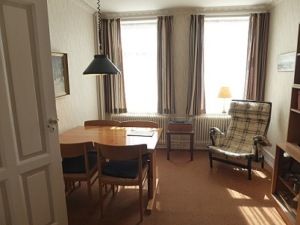News
Demand for co-operative housing leads to increase in brown envelope payments and illegally high prices
This article is more than 8 years old.
Anyone house-hunting knows that the Copenhagen market is increasingly tight and ‘sweeteners’ may be required to obtain the prize

Politicians want to see an end to potential buyers having to pay over the odds to get flats (photo: Leif Jørgensen)
Flats in co-operative buildings (andelsboliger) in the country’s largest cities are increasingly being sold with ‘sweeteners’ being given to the seller under the table.
Furthermore, owners of co-operative flats are increasingly selling their properties above the price agreed by the board of the andelsbolig.
Both practices are illegal and can lead to a prison sentence for the seller, but it is almost impossible for buyers to demand their money back if they have paid over the price agreed by the board of the andelsbolig, reports Metroxpress.
Past its expiry date
As the law stands, in the case of co-operative housing it is impossible to bring a case after six months have passed. Other types of housing have a limit of three years in which to demand a refund if you have paid more for a dwelling than it is worth – for example, if you discover the building is riddled with rot.
“There are a number of people who first become aware that what the seller has done is illegal when they come to the annual general meeting a year after they’ve bought the flat,” Erik Matthiesen, a lawyer specialising in housing matters, told DR P4 København. “Then it may be too late.”
Wanted: a level playing field
Danish MPs are aware of the problem and discussions are taking place in Parliament concerning these issues. A number of parties are ready to amend the law to allow people who have bought co-operative housing to sue the owner if they have paid too much.
“There doesn’t seem to be any good reason for this difference, so of course buyers of co-operative housing ought to be equal in law with buyers of other types of housing,” said Merete Dea Larsen, the housing spokesperson for Dansk Folkeparti.
She would also like to investigate whether it ought to be made punishable by law for buyers to pay money under the table.
The business minister, Brian Mikkelsen, is in agreement and ready to see whether the law needs to be amended.










































